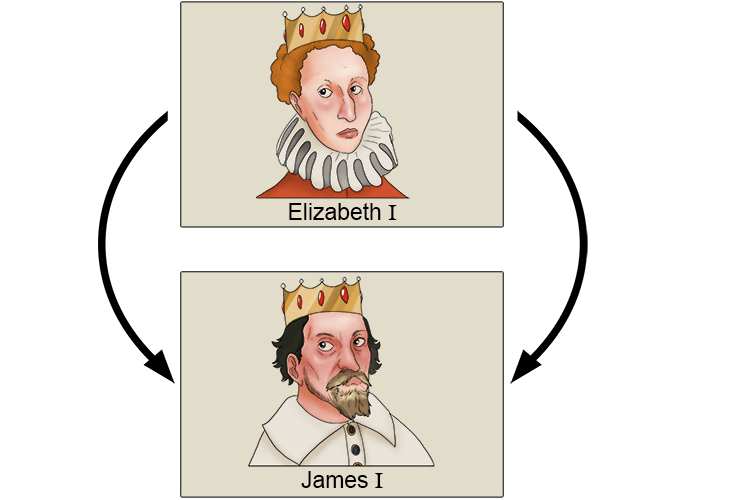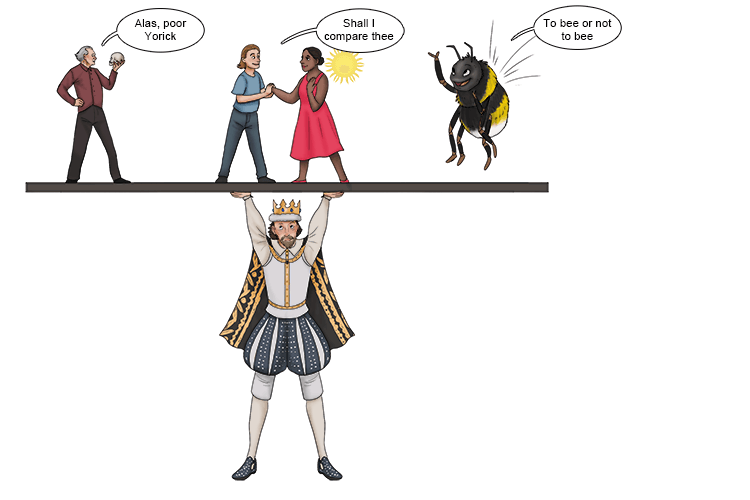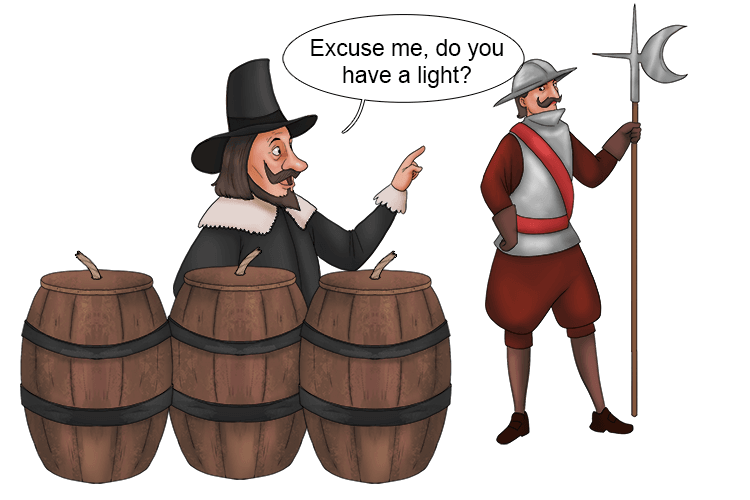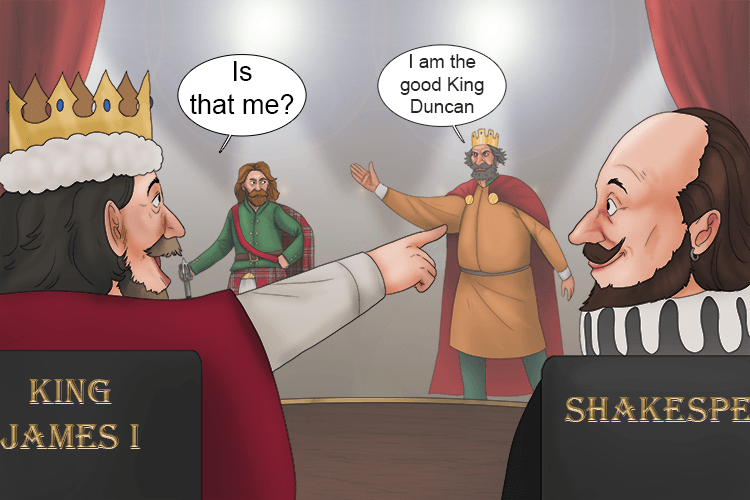James I

After Elizabeth I died (1603) without a male heir James I became King.

James I became King because he was the great, great grandson of Henry VII. James I was already King of Scotland under the title James VI of Scotland for 36 years. He ruled both Scotland and England for a further 22 years. When he inherited the throne he moved to London immediately.

King James I officially became a patron of Shakespeare's acting company, The Lord Chamberlain's Men, in May 1603. He granted them a royal patent renaming them The King's Men which brought prestige and increased popularity. James I had a reputation for supporting the arts.

in 1605 Guy Fawkes and fellow catholic conspirators attempted to blow up Parliament and James I. The group wanted to overthrow King James I and establish catholic rule in England.

Just after the gun powder plot and because James I had supported his company of actors, Shakespeare wrote Macbeth as a tribute to King James I. You could say it was positive propaganda to help King James I and protect him from any further plots.
There are lots of reasons to support this:
- Play set in Scotland.
- Supernatural elements in the play and James I was an avid scholar writing a book on witchcraft.
- Macbeth is a cautionary tale against usurping the throne and disrupting the natural order. The play is a warning against the dangers of unchecked ambition and violence showing the consequences of Macbeth's regicide.
- The play is a deterrent and warning to those who may wish to plot against a King.
- Scottish history really does have a King Duncan who was murdered by a Macbeth.
- King James I claimed to be a descendant of Banquo, who he believe existed at the time.
- King Duncan is portrayed as a virtuous King and reflects many of James I beliefs and fears.





